Wednesday☕️

Trending:
- Yesterday, the U.S. military carried out a precision strike on a suspected drug vessel in the southern Caribbean, killing eleven people. President Trump announced it during an Oval Office event, stating the boat, which left Venezuela, was carrying a large amount of drugs linked to the Tren de Aragua gang, designated a terrorist organization by the U.S. Secretary of State Marco Rubio called it a lethal strike against a narco-terrorist group. Video shared by the White House shows a speedboat exploding in international waters.
- Official White House posts:
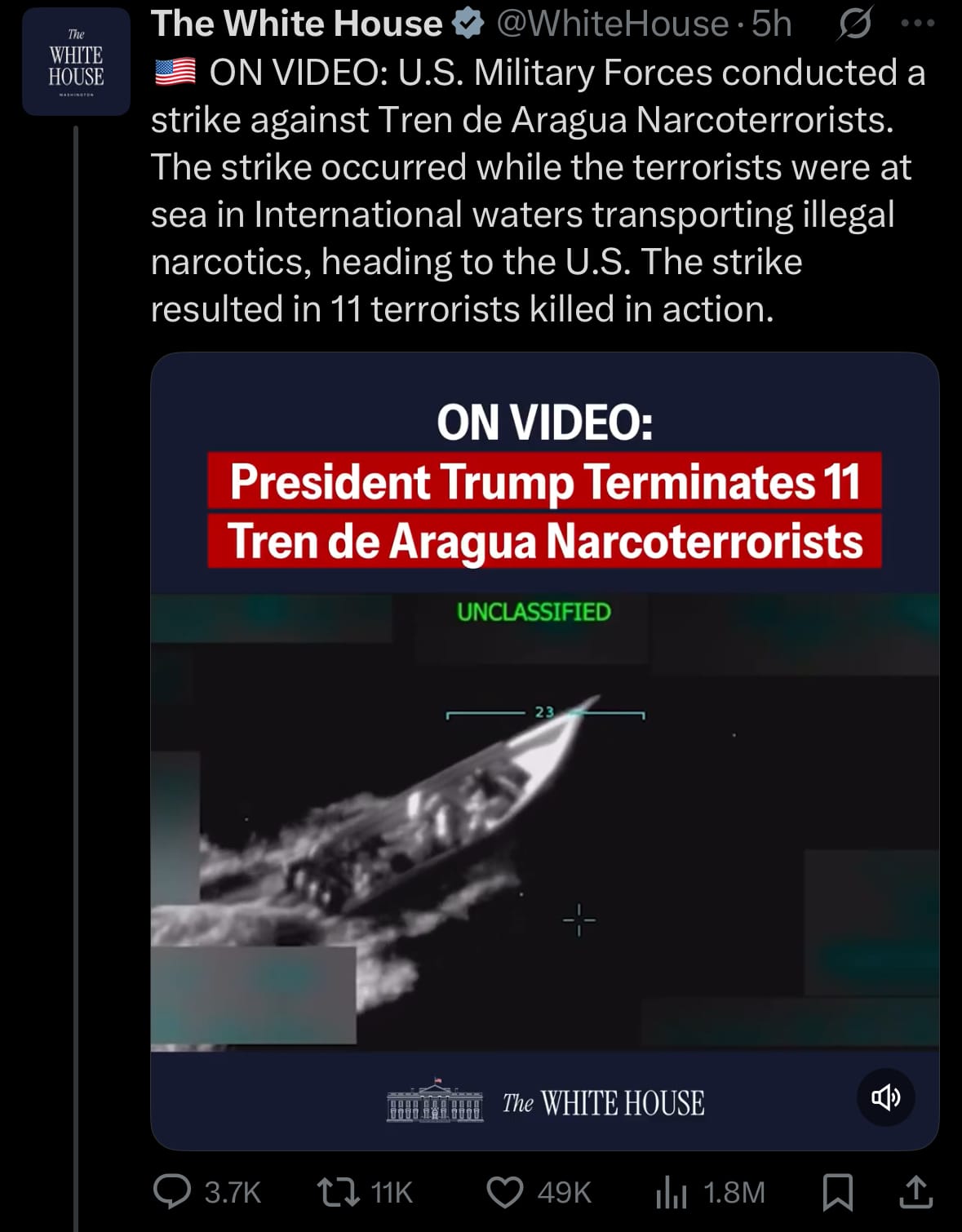
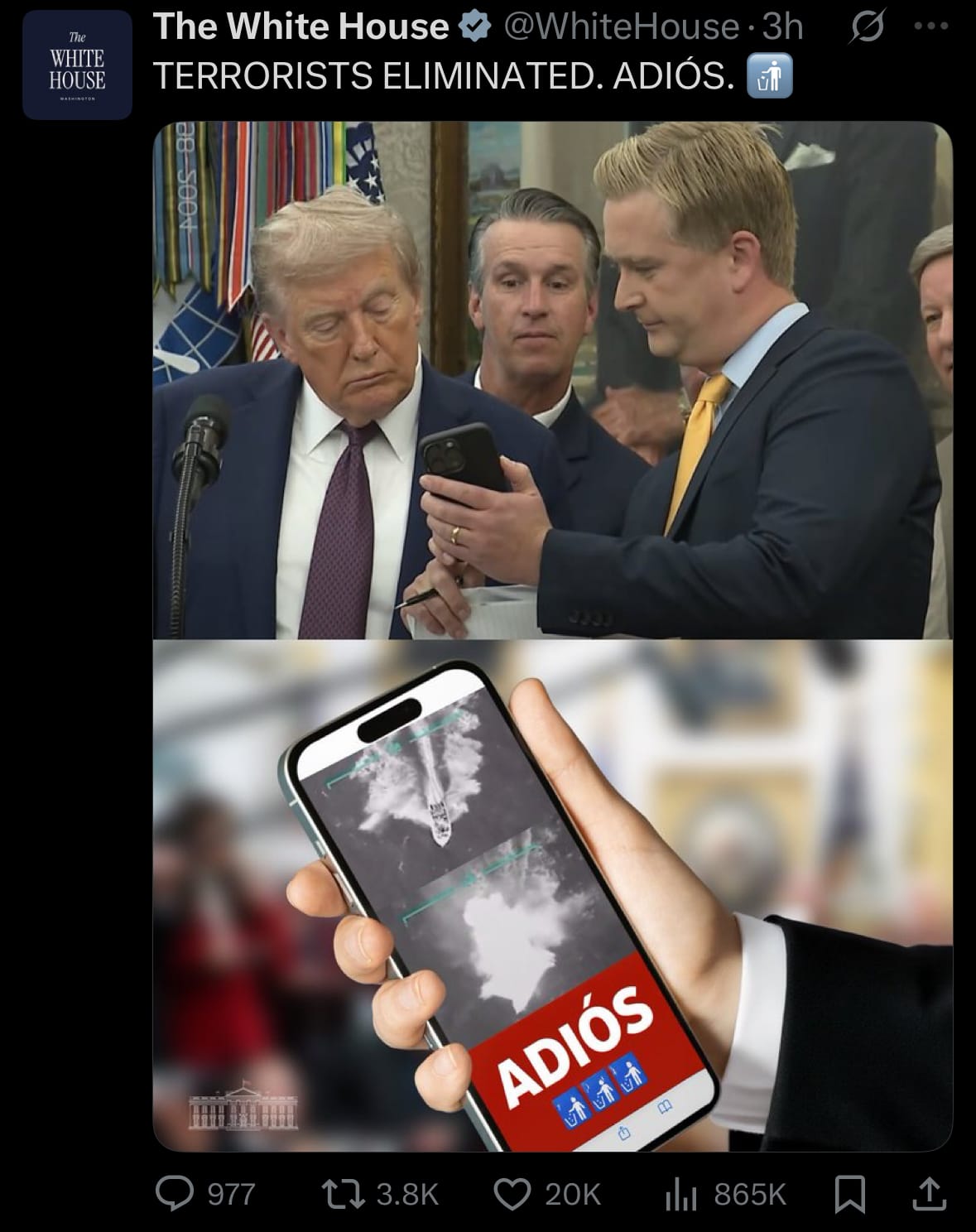
- The Pentagon confirmed the operation but provided no details on the drugs, their quantity, or how the strike was executed. This is a shift from typical U.S. tactics, which usually involve Coast Guard interdictions for arrests, not lethal strikes. It follows a recent U.S. naval buildup in the region to counter drug cartels, amid rising tensions with Venezuela's government, which denies involvement.

Economics & Markets:
- Yesterday’s U.S. stock market:
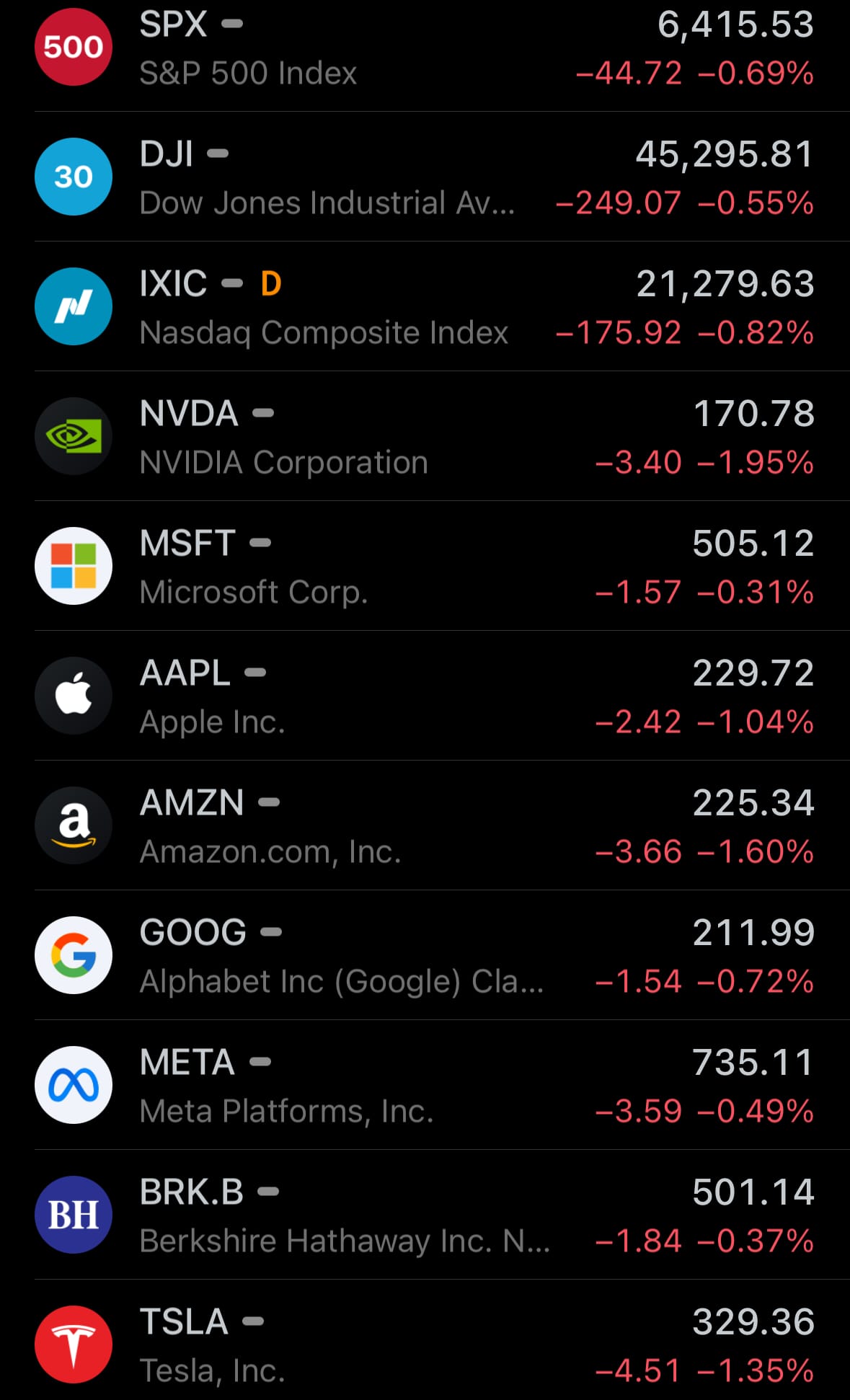
- Yesterday’s commodity market:
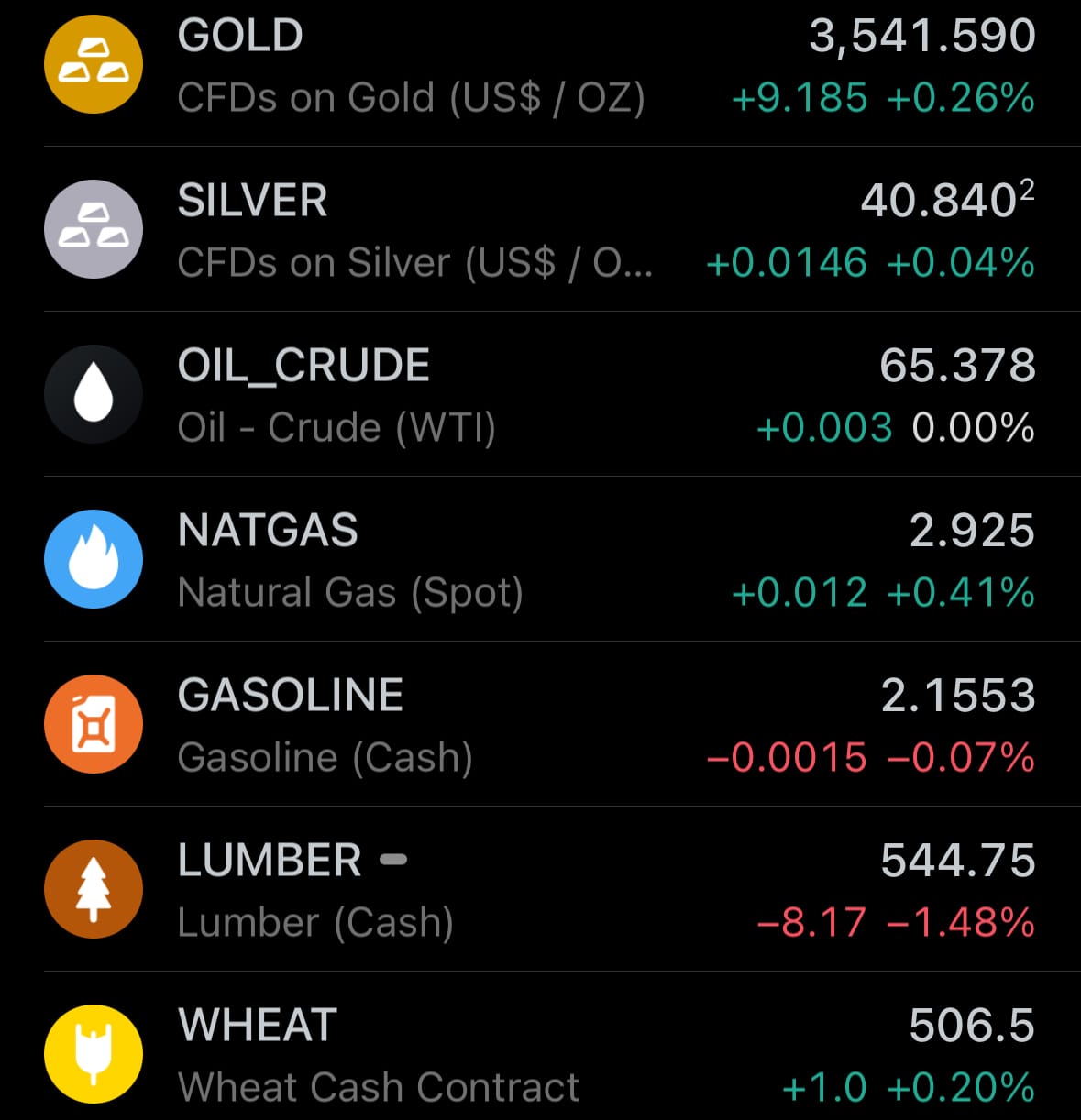
- Yesterday’s crypto market:
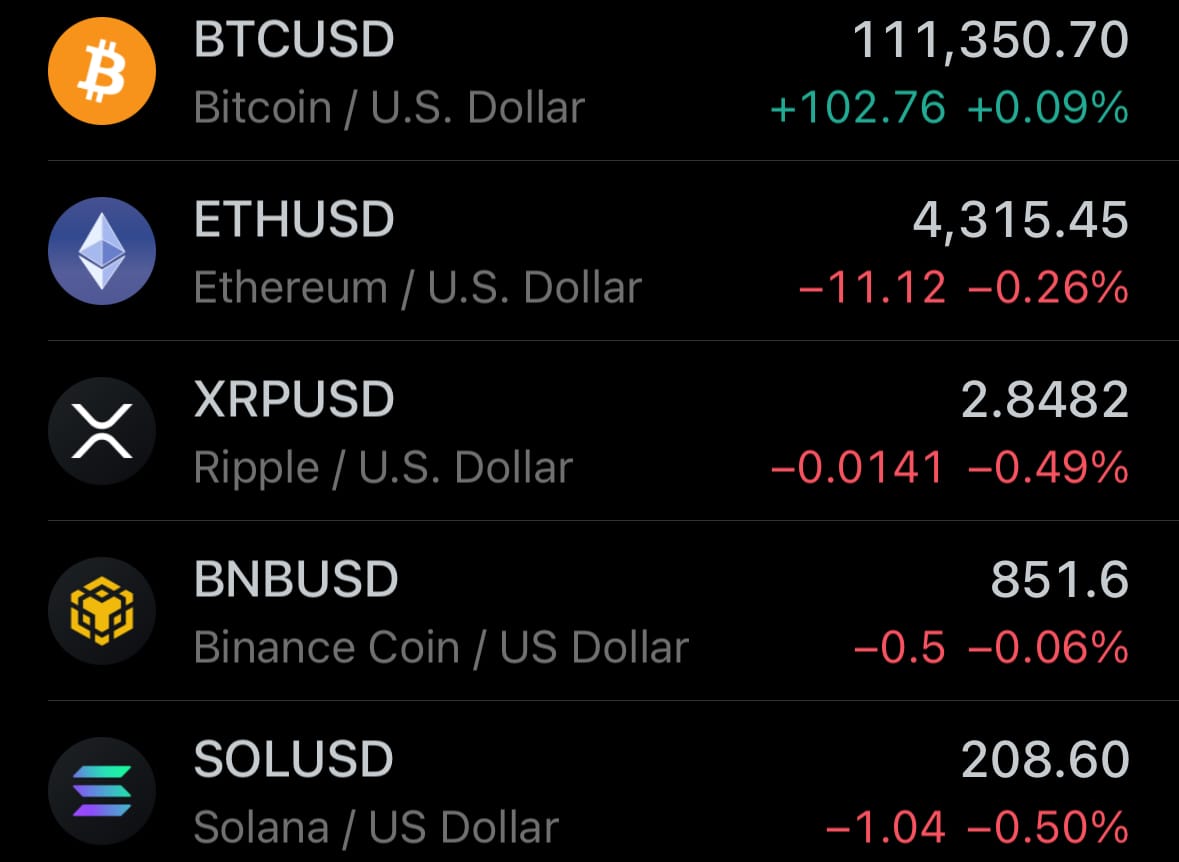
Business:
- On September 2, 2025, U.S. District Judge Amit Mehta ruled in the Department of Justice's antitrust case against Google that the company will not be required to sell its Chrome browser or Android operating system, rejecting proposals for divestiture as an ill-suited remedy. The decision follows an earlier finding that Google unlawfully maintained monopolies in online search and search advertising through exclusive deals.
- Instead, the ruling imposes behavioral restrictions, including bans on exclusive distribution agreements for Google Search, Chrome, Google Assistant, and Gemini AI, while allowing non-exclusive payments to partners like Apple. Google must also share certain search index and user-interaction data with competitors on commercial terms, with compliance monitored by a technical committee for six years.
Space:
- On September 2, 2025, Israel successfully launched the Ofek 19 satellite from an undisclosed location within the country, utilizing a domestically developed Shavit rocket. The launch, conducted by Israel Aerospace Industries in partnership with the Israeli Defense Ministry, placed the advanced synthetic aperture radar (SAR) observation satellite into low Earth orbit for military surveillance purposes. This technology enables high-resolution imaging irrespective of weather or daylight conditions, enhancing Israel's reconnaissance capabilities as part of its ongoing Ofek satellite series, which began in 1988.
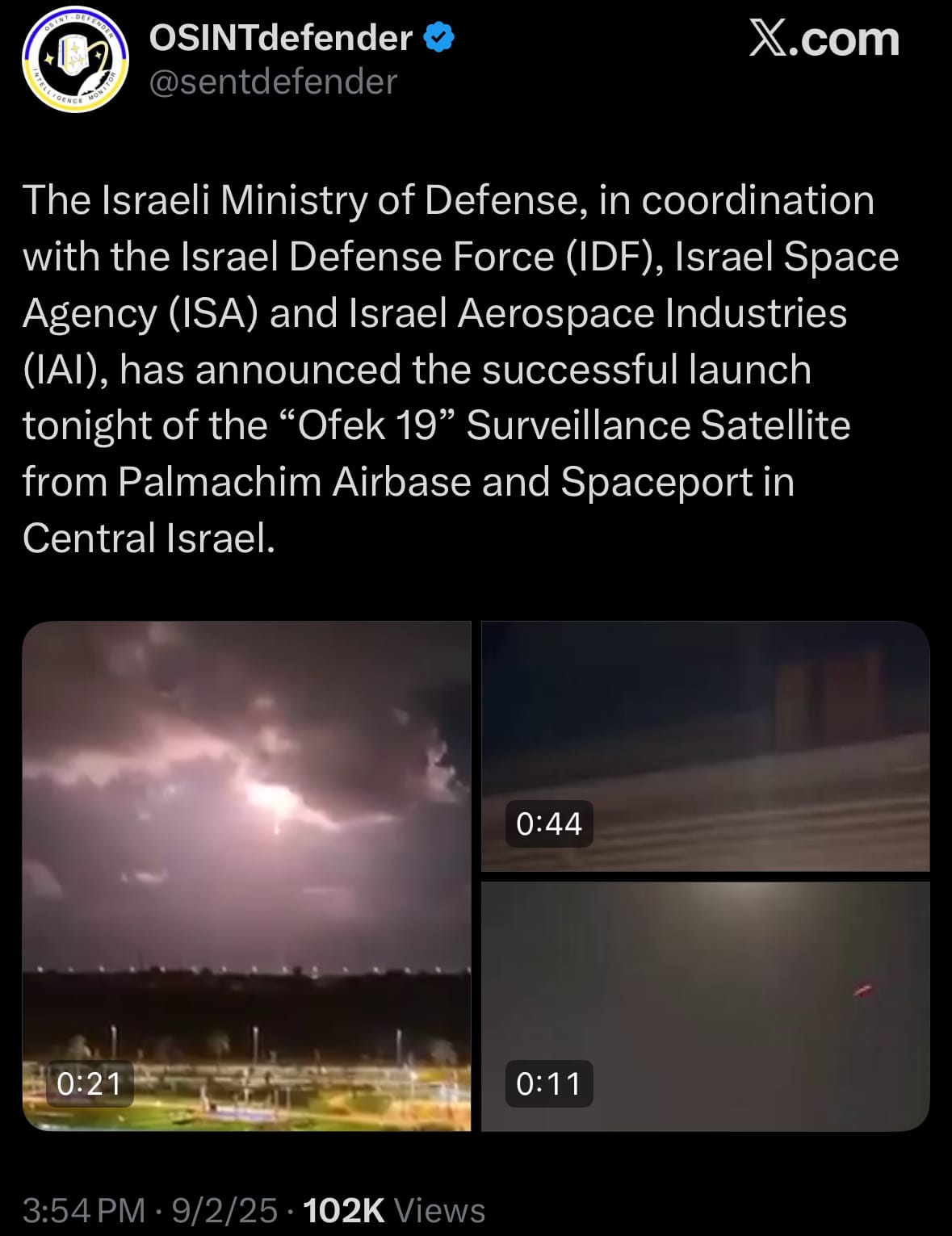
- The unannounced evening launch caused brief public concern, with some mistaking the rocket's visible trail for an incoming missile amid regional tensions, as captured in social media videos and posts. No anomalies were reported, and the satellite is anticipated to become operational following testing, marking Israel's continued advancement in independent space technology. This event occurs against a backdrop of heightened military activities, including reservist mobilizations, though no direct connections were specified in available reports.
Statistic:
- Largest public companies on Earth by market capitalization:
- 🇺🇸 NVIDIA: $4.157T
- 🇺🇸 Microsoft: $3.754T
- 🇺🇸 Apple: $3.409T
- 🇺🇸 Alphabet (Google): $2.559T
- 🇺🇸 Amazon: $2.403T
- 🇺🇸 Meta Platforms: $1.846T
- 🇸🇦 Saudi Aramco: $1.530T
- 🇺🇸 Broadcom: $1.402T
- 🇹🇼 TSMC: $1.184T
- 🇺🇸 Berkshire Hathaway: $1.081T
- 🇺🇸 Tesla: $1.062T
- 🇺🇸 JPMorgan Chase: $824.10B
- 🇺🇸 Walmart: $780.14B
- 🇨🇳 Tencent: $701.75B
- 🇺🇸 Visa: $679.46B
- 🇺🇸 Eli Lilly: $659.06B
- 🇺🇸 Oracle: $632.82B
- 🇺🇸 Mastercard: $535.05B
- 🇺🇸 Netflix: $515.90B
- 🇺🇸 Exxon Mobil: $488.95B
- 🇺🇸 Johnson & Johnson: $428.82B
- 🇺🇸 Costco: $416.34B
- 🇺🇸 Home Depot: $404.43B
- 🇺🇸 AbbVie: $374.36B
- 🇺🇸 Bank of America: $373.45B
- 🇺🇸 Palantir: $372.67B
History:
- In the 20th century, thinkers like Alan Turing laid the intellectual foundation, proposing the concept of a “universal machine” capable of simulating any form of reasoning and introducing the famous Turing Test as a measure of machine intelligence. By the 1950s and 1960s, pioneers such as John McCarthy, Marvin Minsky, Herbert Simon, and Allen Newell were building the first programs that attempted problem-solving and logic, giving rise to the term “artificial intelligence” itself. Though limited by hardware and data, these early systems sparked both optimism and skepticism about the possibility of machines truly thinking.
- Artificial intelligence has evolved rapidly over the past few decades, moving from rule-based expert systems to today’s cutting-edge generative models. Early breakthroughs in machine learning, such as backpropagation in the 1980s and the rise of statistical methods in the 1990s, laid the groundwork for modern AI. The 2010s ushered in the deep learning revolution, with architectures like convolutional neural networks (CNNs) driving advances in image recognition and recurrent neural networks (RNNs) transforming speech and language processing. This era produced landmark moments, such as AlphaGo’s victory over human chess champions and the emergence of large-scale language models trained on vast datasets, capable of generating human-like text and understanding natural language with unprecedented fluency.
- Today, AI has reached a new frontier with state-of-the-art models such as OpenAI’s ChatGPT, xAI’s Grok, Anthropic’s Claude, Google DeepMind’s Gemini, Meta’s LLaMA series, and China’s DeepSeek. These systems represent the convergence of scale, efficiency, and alignment research, enabling advanced reasoning, multimodal capabilities (text, images, audio, video), and safer deployment at global scale. Rather than isolated tools, modern AI models function as foundational platforms—powering assistants, enterprise applications, and research breakthroughs across industries. The competition among tech leaders has accelerated innovation, making AI not just a field of study but a transformative force shaping geopolitics, economics, science, and daily life.
- As AI advances accelerate, the world is shifting into an emerging technocracy where power is increasingly defined by access to data, compute, and algorithmic intelligence. National security imperatives have become central drivers of this race, with the United States and China investing heavily to leverage AI for strategic and military dominance. From autonomous systems to cyber operations, intelligence analysis, and battlefield decision-making, AI is no longer just a commercial innovation but a cornerstone of geopolitical competition. Because these models are continuously trained and refined, their capabilities expand at a compounding rate, creating a feedback loop where each improvement accelerates the next. This relentless pace of development hints at a future in which governance, economics, and security are all mediated through algorithmic power, raising urgent questions about the balance between innovation, control, and human oversight in an increasingly AI-driven world.
Image of the day:

Thanks for reading!
Earth is complicated, we make it simple.
Monitor the planet with the Earth Intelligence System. Click the image below to view the Earth Intelligence System:
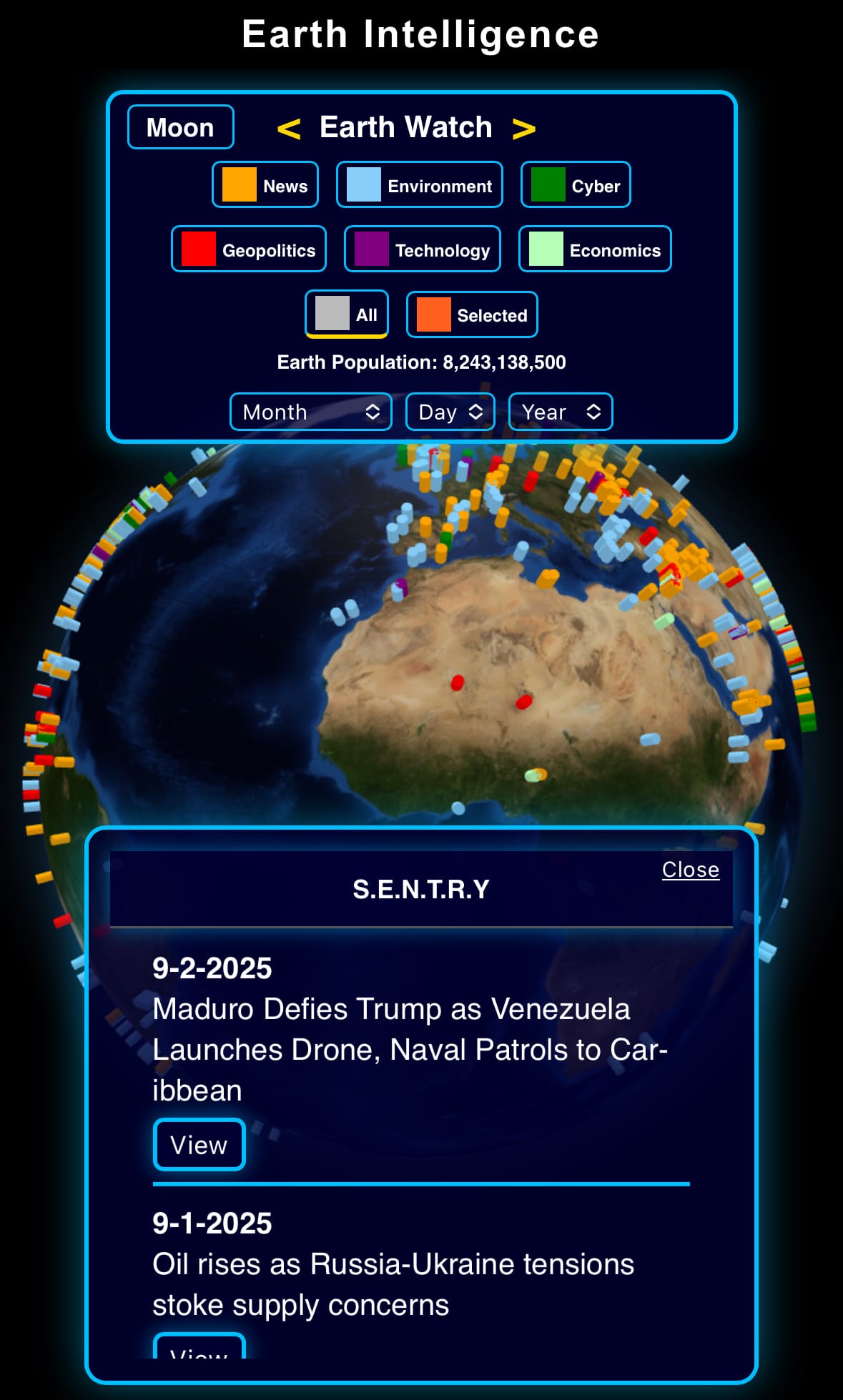


Support/Suggestions Email:
earthintelligence@earthintel.news




